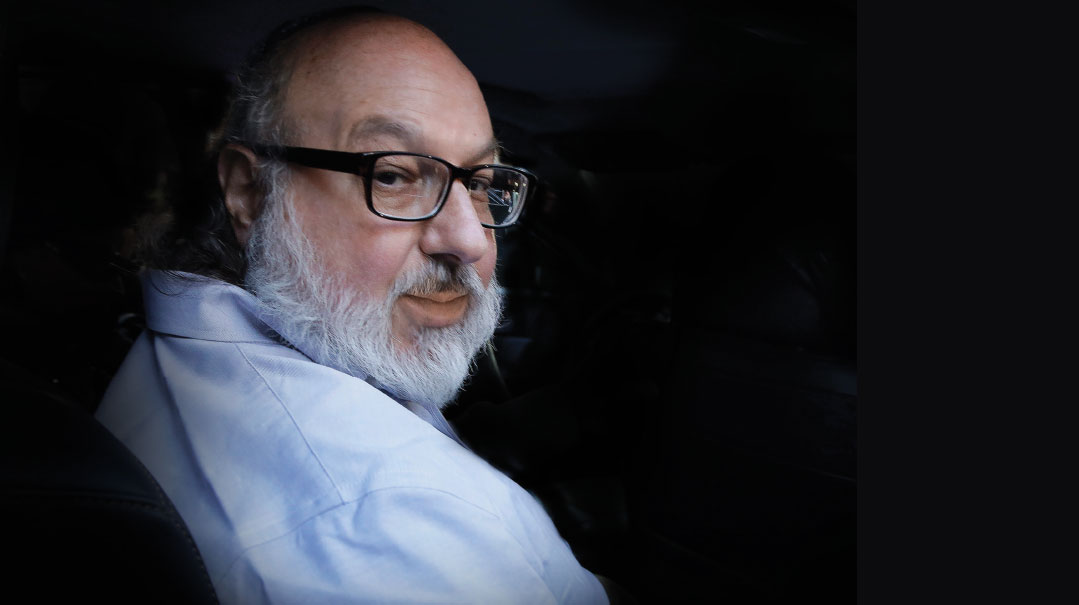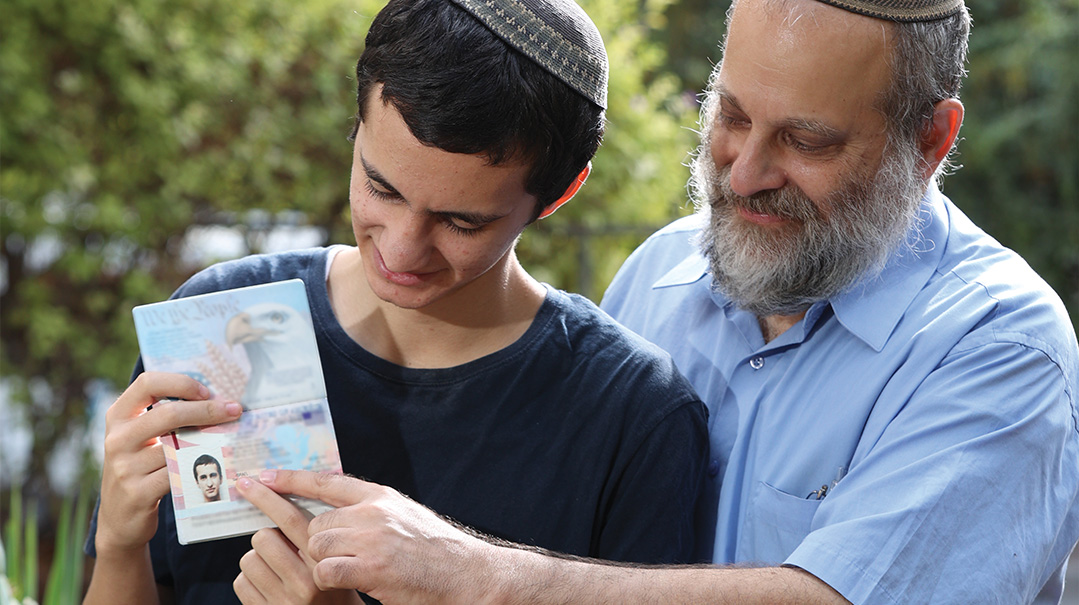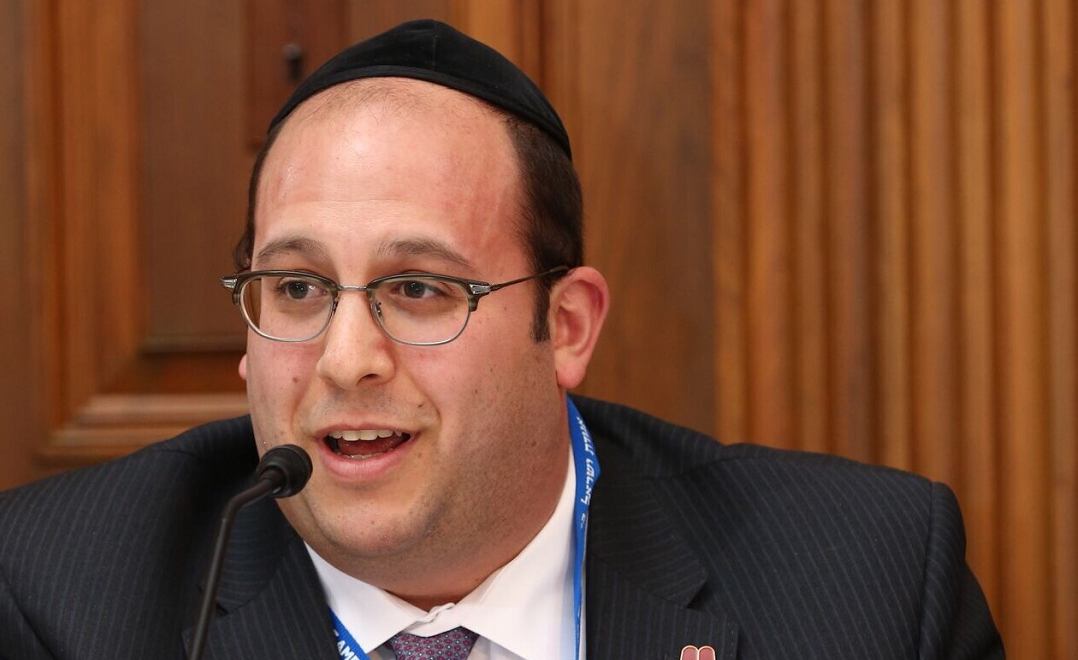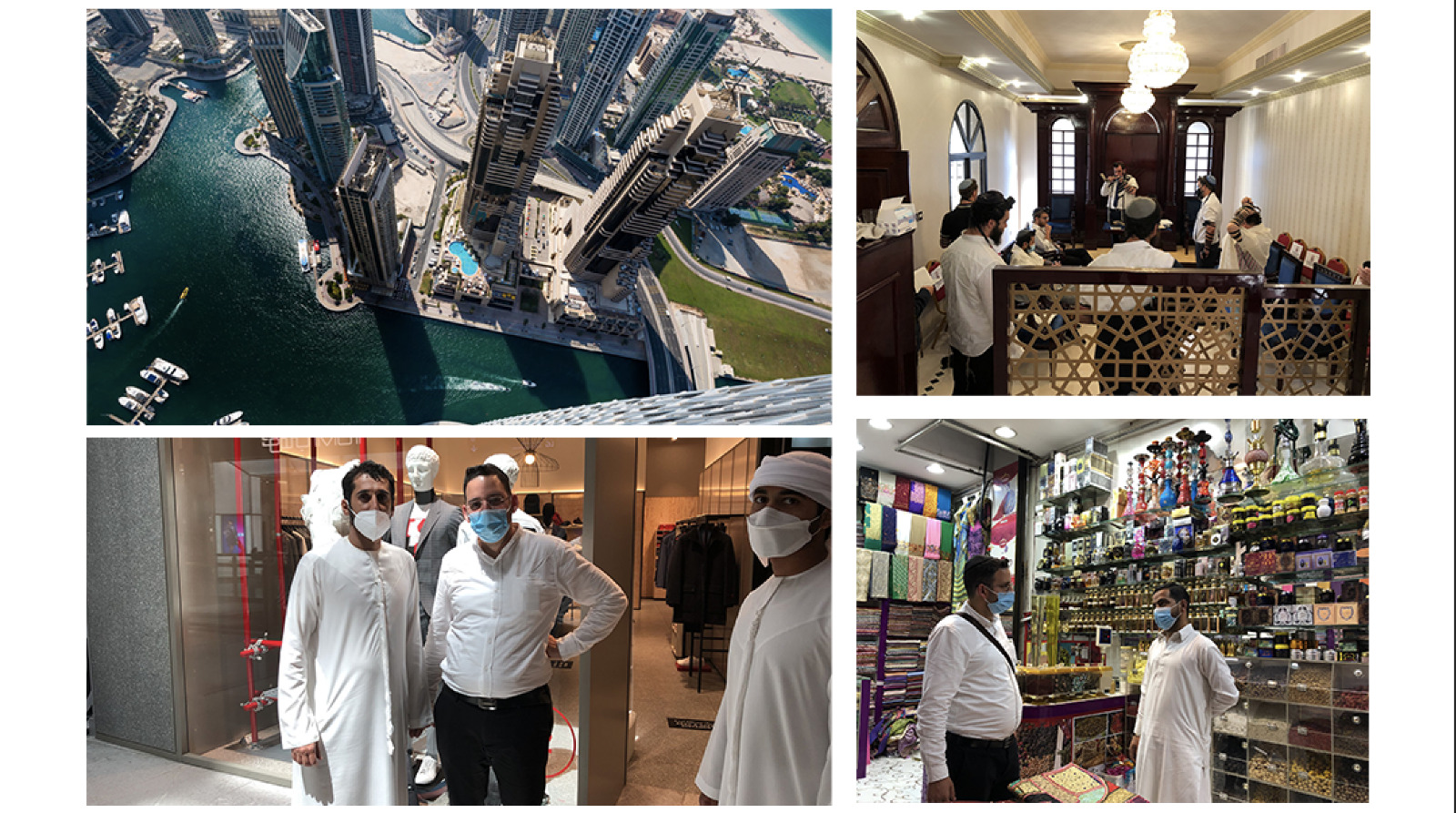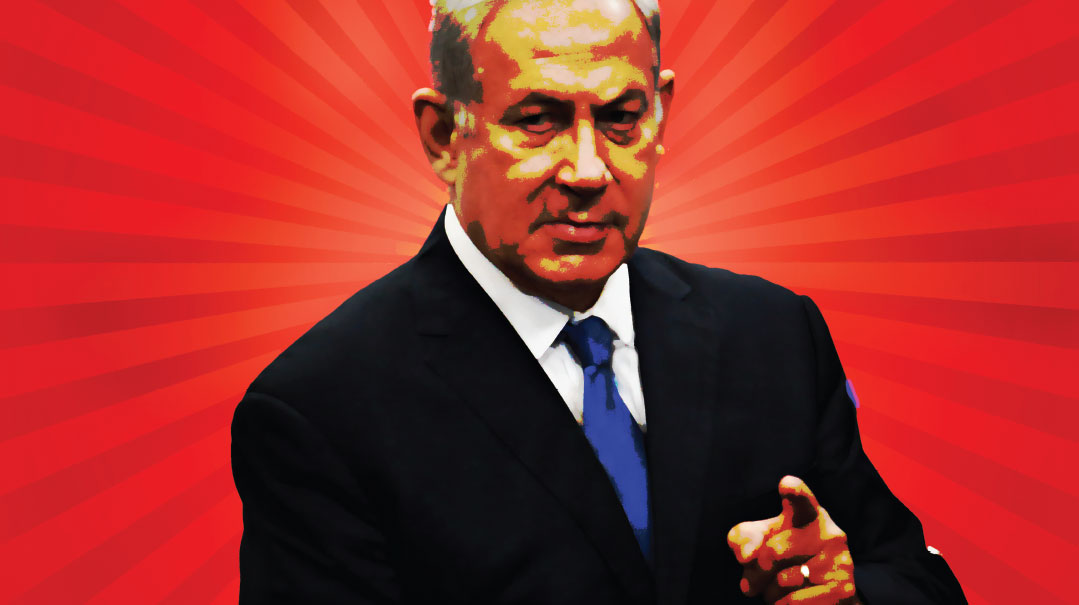Changing the Prison Narrative, One Judge at a Time

"If you kill somebody you kill them once as punishment, and he’s forgiven. In prison, you kill them every single minute of the day"
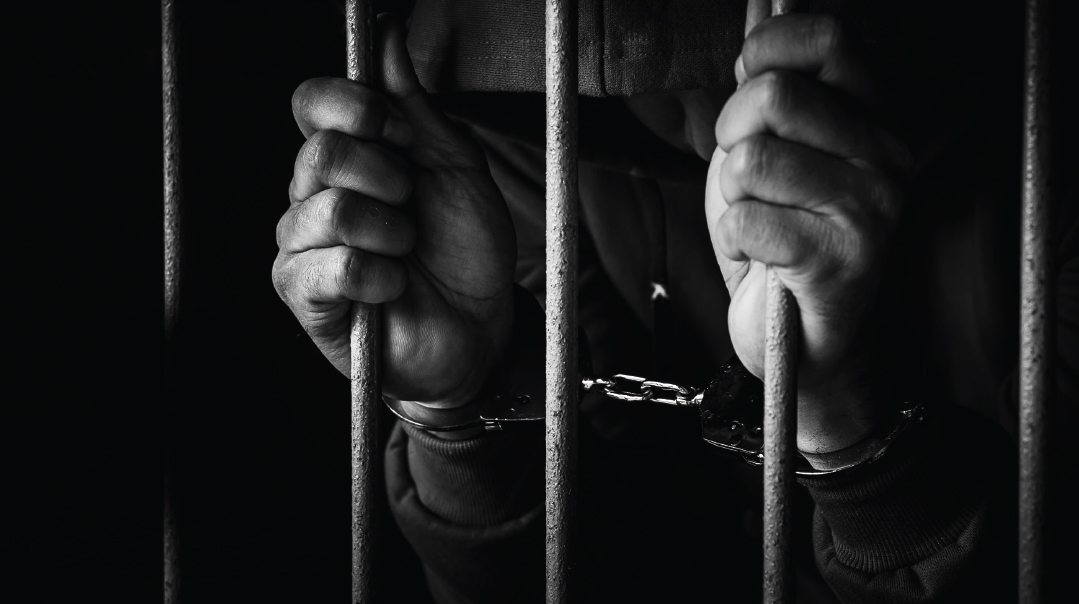
Photos: Meir Haltovsky
M
enashe Levy’s first call upon landing in Ben-Gurion Airport was the same call made by many other newly freed people — a thank-you and update to the Aleph Institute, an organization started three decades ago to advocate for prisoners.
Aleph Institute was founded by Rabbi Sholom Lipskar at the behest of the Lubavitcher Rebbe in 1981, and he has directed its operations ever since. During those decades, the organization has greatly expanded its prison advocacy and added a military program. Today Rabbi Lipskar’s nephew, Aaron Lipskar, serves as executive director, Mendy Katz is in charge of programming, and Zvi Boyarsky is on top of advocacy. Shua Brook, who manages the family services directory, works with children and families of prisoners.
One major milestone for the group came in the waning days of 2017, when President Donald Trump got behind an initiative that germinated in 2009 and snowballed into what was once thought to be shoo-in legislation for the Obama administration. That didn’t happen, but Trump signed the First Step Act into law, giving elderly and remorseful prisoners a pathway to freedom.
A conference held last month at Columbia Law School in Manhattan was part celebratory and part galvanizing for the next step — the Second Step, if you will. It was also an opportunity for Rabbi Sholom Lipskar to reflect on what’s been accomplished, and what remains to be done.
One of the prominent attendees was New York State Attorney General Tish James, the state’s top law enforcement official. James echoed the message of the Aleph advocates, saying that “we need to address mass incarceration. We need to introduce the reforms the people who are attending this wonderful conference have suggested. It’s critically important that we invest in human potential and not in mass incarcerating of individuals.”
But it was Rabbi Lipskar who dug down and provided a deeply Jewish, ideological basis for the advocacy work that’s become his life’s mission.
What are the Aleph Institute’s most significant accomplishments these past few years?
You have to recognize that there’s no such thing as “accomplishing” in the last few years. It’s a long process. The process started when the Rebbe told us to begin a program to address an area that has not been addressed in the Jewish world, and in the general world as well — the waste of human potential, and the taking of human beings and putting them into an environment that, according to Minchas Chinuch, “is possibly worse than death.” That’s prison. Prison takes away a person’s ability to live, a person’s ability to feel, a person’s ability to function. And I’ve seen many examples of that.
If you look at all the punishments in the Torah, you find capital punishment, corporal punishment, fines, selling into slavery — there’s no prison there. You find prison only by Pharaoh or of a temporary nature until Moshe Rabbeinu found out which punishment to give.
If you kill somebody you kill them once as punishment, and he’s forgiven. In prison, you kill them every single minute of the day. In a certain way, you kill his wife, you kill his children, you kill his grandchildren.
Aleph is there to establish the Torah’s perspective on how to deal with human beings in very difficult and limited environments. The main emphasis has been on the prison environment, but we also work in the military for the same reason. It’s a place where Jews are not exposed to the ability to have a Jewish life.
If not prison, what was the Rebbe’s perspective on how criminals should be punished?
The Rebbe believed that prison should be a place where a person can reflect on his life, make some good resolutions, feel that he can do teshuvah. The word “rehabilitation” has been taken out of the system. When I go there to visit somebody, I can’t write their name, I have to write their number. Which means they lose their identity. Everybody dresses the same, which means they lose their personality. Everybody has limitations on human contact, which means that they can’t have intimacy and humanness.
Within the prison environment, it’s a critical element to humanize their experience and to bring a sense of purpose. To reconnect them with their families.
We have three objectives here:
Objective number one is that we have to deal with the present, with what’s going on right now. There are millions of people in prison. How do we humanize the prison environment? How to better the kind of people who staff the prison?
We want the prisons to be more humanized by creating a deeper focus by constantly working to become more and more sensitive. We have been privileged to work with remarkable and very caring prison officials. And on a general level we find that, the more sensitivity the leadership and those in the office feel towards those prisoners, the more human they feel.
Number two, in that same space, also to encourage family interaction because there’s a high percentage of divorce that takes place because of prison. Divorce happens either at the beginning of prison, just when the prisoner goes in, or just before he comes out. Sometimes the wife doesn’t want to make waves or hurt the prisoner so she copes. And then, just before he comes out, it hits her. And this doesn’t have to be.
Number three, there should be incentives in place for them to eventually come out. Just as we did with the First Step Act, which allows elderly people to go out early, we should have something for the entire prison population. When they come to prison they should know that if they do teshuvah they can get out early.
Imagine that someone injured someone else. What would you see as an appropriate punishment? Why should the perpetrator be on the streets? What about the victim?
The victim has to be made whole. In halachah we have a multipronged compensation formula of nezek, tzaar, ripui, sheves, and boshes. You have to pay. But whatever the price, what does it help him if the perpetrator is in jail? Proof of this is that you see recidivism. You see more crime after people are let out. Jail doesn’t work.
So your vision would be for every criminal to have to pay his victim?
No. You take a man who is a great doctor. He commits a crime, you make him work for the next ten years for free in an underserved area. Let’s say the perpetrator is a good mechanic. He should go fix cars for nonprofit organizations for the next five years. He should get paid just for his rent and his food bill, nothing else. No vacation.
What about dangerous people?
Of course there are individuals, such as people with predatory or violent conduct, who need to be confined to keep society safe.
According to halachah we have no concept of prison to protect society. The Torah only talks about prison when they didn’t know what to do with him.
There’s also the economic cost. You put a person in prison, it costs a huge amount of money.
A judge once made an important point. He said, you know, there are bad people who do bad things. These people have to be really controlled. But then there are good people who make bad decisions. Most people are good people who just make bad decisions. They figure, parnassah, they’ll get away with it, whatever the case is. A guy will give them $500 to cash a $10,000 check. There’s gaming the credit card point system. They don’t think of the consequences.
These people — the good people who make bad decisions — are our general focus, in which we try to educate the judges, we try to educate the prosecutors, we try to educate the parole officers.
So what specific focus do you want to emerge from this conference?
Right now, out of the 94 prosecutorial districts in the country, only about 20 of them are considering our concepts. We’ve got to get the other 70-odd districts. Word has to get out that this approach is okay.
When we started this, people were laughing at us. “The guy is in prison, he’s a bad guy.” That was the attitude. We had to change the thinking. The guy is in prison because he made a bad move, not because he’s a bad guy.
So in a nutshell, you want judges to know that the nation is turning away from harsh sentencing, that if you go lenient you won’t be appealed.
To give you an example, I had two valve replacements. The first one — an open heart surgery — took place 15 years ago. I was in the hospital for two weeks, and then another three months for rehabilitation. And then I had another replacement a year ago. Six hours after my surgery I was walking around, and two days later I was finished with the whole process.
These kinds of advances are common in the medical field, in every field. But in prison we went backward, not forward. We still warehouse humans. We’re still treating them the same way. We have to realize that there’s another way of dealing with people who make mistakes.
Minimum Sentences and Maximum Damage
Q & A with Justice Nancy Gertner
Nancy Gertner, a prestigious former federal judge in Massachusetts, is now on Aleph’s advisory board. She is currently working on a book documenting her correspondence with defendants she once sent to prison, and is now brainstorming to come up with better solutions to societal problems.
What brings you here to this conference?
I’m here because this is my passion. I was a federal judge for 17 years, and 80 percent of the sentences I was obliged to impose were unfair. I knew that when I was doing it, and I know it now. So it is critical to try to undo this system.
Back then I didn’t know that Aleph existed, but what Aleph is doing is essentially the same thing that I was saying. So I love the work that they do. They have gotten 26 judges in this room. It is amazing that they could sponsor a conversation like this.
What message would you want to come out of this conference?
Well, others need to be receptive to a message. What Aleph does is take someone we call a defendant, and makes it clear that they are human beings. We talk about defendants all the time, but we need to talk about human beings. And Aleph talks about human beings.
One of the things mandatory minimum sentencing and the guidelines did is reduce people to numbers on a grid. [With those requirements in place,] judges felt they had no other choice. Even in places that didn’t have mandatory minimum sentencing, a punitive culture set in. So anyone who would reach out to a drug addict and explain their behavior would be seen as soft on crime.
So we have to start another conversation, and then we have to undo the laws that reflected the old conversation. And that’s what Aleph is doing.
Why do judges impose harsh sentences? Is it because they don’t want to be seen as soft on crime, or is it the fear of being appealed?
I think it is because the institutions that support the mass incarceration are many. One is the media. If I sentenced somebody to a lesser sentence and then that person reoffended, I would get slammed in the media. Now, of course, if you were in prison and then reoffended, the lesson that should come from that is that prison doesn’t work. But that’s not the lesson people take. So this has to be something we talk about in the media as well.
The judges from the appeals courts should be here as well. The appeals courts are still in the world of retribution and over-punishment.
The public also has to be part of a conversation that long sentences did not work. They. Did. Not. Work. They didn’t work to reduce crime, and all it did was have communities destroyed because of it.
I’m working on a book about some of the men I sentenced. One of the men had an intact family, a union job, and he couldn’t live with his wife because of a stupid rule, because he had a prior offense from six years before and she lived in public housing. So every morning he would come from the projects and go to the public housing where she lived, send the kids off to school, go to his union job, come back to the house, put the kids to bed and then go back home to the projects.
He was 23 years old, and he sold crack. It was clear that this wasn’t his life — he had a wife, kids, a union job. But to the prosecutor it made no difference. When it came time to sentence him, they came at me, as the judge, with a five-year minimum sentence. They actually wanted eight years and I got it down to five.
I just interviewed him a few weeks ago. His relationship with his wife and kids didn’t survive prison. The whole thing made no sense. And no one was willing to say, “Yes, he dealt crack, but put him on probation.” It wasn’t available to the prosecutors because of the laws, and I was stuck in a mandatory minimum. It was so ridiculous. It got into a time warp that no one could get out of.
It was laws, it was judges, it was the media, it was the court of appeals. And Aleph is trying to break that paradigm.
Our community is basically law abiding, but people do get into trouble sometimes. What would you, as a judge, suggest people do right after an indictment?
You’d want to reach out to a lawyer, but you’d also want to reach out to sentencing experts. Reach out to someone like Aleph. You’d want to work on two tracks at the same time. You have to work on the “I am innocent” track, how to defend, and if I’m guilty, what to do about it. It can’t be that sentencing comes as a surprise.
There have been reports that in some parts of the country a noticeably Orthodox Jew cannot get a fair jury. What should they do, waive their trial by a jury of their peers?
Yes. Well, you have to do something about the media. I write op-eds all the time. Here’s something about the media — you can’t write them off. Because they matter. The jury pool is affected by the veil through which they see the case.
I had a case of a white supremacist who was going to make bombs to blow up the Anti-Defamation League. It was clearly a hate crime and it was clear what was motivating him — he had letters. I had to pick a jury of people who can see this white supremacist and separate the ideology from whether he did the act. I spent two days picking a jury.
So the answer is, you need a meaningful jury selection where you could literally question people about the extent to which there are stereotypes.
There’s a stupid question all judges ask. They ask, “Do you have any biases?” Everyone answers no to that question. But if you start talking about the usual anti-Semitic tropes — like, do the Jews have all the money? — it would be interesting to hear what they say. And if you’re in a community where that can’t be done, waiving a jury is not so easy because in a federal court this has to be done with the defense and prosecutor agreeing. In state court you can usually choose to waive a jury with only one side. So this is harder, but there’s work you could do.
When I was a trial lawyer, I was once representing a black kid who was accused of killing a white woman across the street. There was really no evidence, just rumor and hearsay. At the closing arguments I said, “This is like a connect-the-dots game. You draw a line connecting the dots and then you see what the picture is.” Some people are going to want to connect the dots and then put a black face on. But if the dots don’t come together, you can’t supply a narrative.
You gave a pretty frightening statistic before, that 80 percent of your sentences were unfair.
It was in response to a minor increase in crime in the ’80s, and was at a time of social dislocation from civil rights. Congress overreacted. And my judgeship was during the period of that overreaction. So [when calculating a sentence,] you couldn’t consider addiction, you couldn’t consider family background — even though those are the drivers of crime.
I have gone back to the people I’ve sentenced and said, “What did we miss?”
You actually reached out to those you sent to prison?
Yes.
What was their reaction?
Amazing. I thought nobody would talk to me. But they are all wonderfully warm. I interviewed the guy I told you about — who was stealing for social reasons — I saw him three weeks ago. We met at a coffee shop. He had two rumpled-up letters in his pocket. The letters were from me. I followed him in prison because I knew he didn’t belong there.
One of the letters he kept was one I sent him as soon as he got out of prison: “How are you doing? Can I help?” And then when he finished supervised release, I wrote him a letter. And he carries them around.
Do you often write to prisoners?
I try. I couldn’t do it all the time, but I try to send to those I felt were unjustly sentenced. I would track them because their sentences were ridiculous. And then I would answer letters, and occasionally I would visit them in prisons. But there’s a distance you have to preserve as a judge. Now I don’t have to preserve that anymore because I’m retired.
As you work on your book, are you now reaching out to all those you sentenced?
I couldn’t do that, I’ve sentenced hundreds and hundreds of people. I picked out some of them for my book — cases that illustrate the stupidity of sentencing laws.
How did you wind up on Aleph’s advisory board?
I was raised on the Lower East Side. My grandparents were Orthodox. My parents raised me as Conservative and moved us out to Queens because my father wanted to play ball on Saturdays. But I knew what the tradition was.
If I had known that the tradition in which I was raised included organizations like Aleph, I may have been more observant than I was. I was a child of the ’60s and left traditional Judaism because civil rights animated me and because tikkun olam wasn’t something that was talked about in the Orthodox world I knew. We talked more about rituals. If I had understood that social justice was animating the religion that I was learning, then things would have been very different. So this is a bit of a return for me.
(Originally featured in Mishpacha, Issue 768)
Oops! We could not locate your form.







